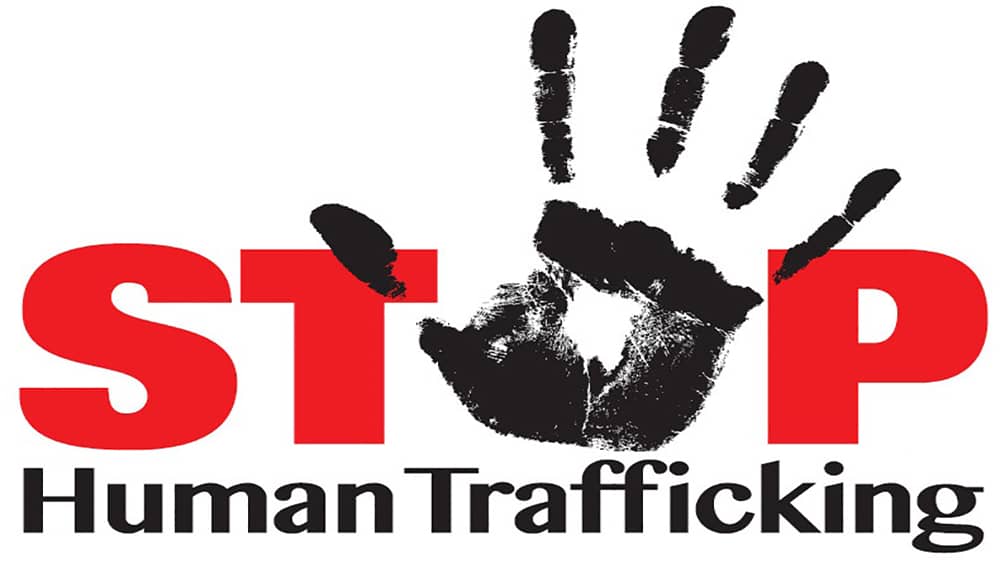
MISSOURI — The Missouri House has approved and sent two proposals to the Senate that would create a new fine against individuals convicted of human trafficking offenses. The new fine would be used to fund efforts to fight trafficking in Missouri and provide treatment and support to its victims.
The House previously approved HB 2307 to create a fine of $5,000 to be assessed against anyone found guilty of any human trafficking offense. The bill also creates the Human Trafficking and Sexual Exploitation Fund to collect the proceeds generated by the fine. This week the House approved HJR 114, which is a proposed constitutional amendment that would allow voters to decide if the revenue generated by the new fine would be dedicated to efforts to fight trafficking and support victims of trafficking.
The bill’s sponsor said the funding generated by the fine would be divided between two uses.
He said, “The $5,000 will be dispersed and allocated 50 percent towards the rehabilitation services of the victims of human trafficking, and 50 percent will be allocated towards the local efforts to prevent human trafficking such as education to law enforcement, hospitals, and schools.”
He also explained the need for the change to the constitution. “Under the Missouri Constitution, all fines that are levied in Missouri go to the school districts,” he said. “We’re not taking away from the schools … this is a new fine. We’re just asking that it does not go to the schools in this case; that it go to the services that we’re providing for.”
The bill sponsor said this new fine could provide game-changing support for efforts against trafficking. In the cases of victims, they often need various services such as counseling to help them recover and lead a normal life. “It takes a lot of money to help these victims get back on a path of restoration,” he said.
The sponsor also noted the education his proposal would help pay for is something law enforcement is requesting. He said, “When they go out and do this education for law enforcement agencies they will have people come up and be very, very upset at the fact that had they had this information just two weeks ago that they might have been able to help somebody because now they are prepared and they know what to look for where they didn’t two weeks ago, and they let somebody go because they didn’t know.”
The sponsor also pointed out that human trafficking is a big issue for Missouri and the state needs more ways to deal with it. He said, “Especially in the Kansas City area we are the heart, because we have I-35 going north and south, we have I-70 going east and west, and we are the pass-through of all human trafficking.”
Supporting Emergency Medical Dispatchers (HB 2381)
The members of the Missouri House have advanced legislation to the Senate that would recognize the service of, as well as the difficulties faced by, emergency medical dispatchers. The House approved HB 2381, which would add dispatchers to state statute’s definition of “first responders.”
The sponsor of the legislation told his colleagues, “For the dispatchers that have always been there for us this is a step in the right direction, to acknowledge that they are the first responders that they are.”
Supporters of the measure say dispatchers are vitally important and are the first link in the chain of emergency response. However, because dispatchers aren’t considered “first responders,” they aren’t afforded benefits seen by EMTs, firefighters, police, and others. That includes health and retirement benefits, and also help to deal with the stress of their job. Lawmakers think that needs to change.
One of the bill’s supporters said, “I was a police officer for 43 years, and in my wildest nightmare I can’t imagine doing what those people do.” He added, “The fact that we have failed to recognize them as an integral part of the first response community, I think, is a real disservice to them. They do their share and then some. They’re often underappreciated. They’re just a voice at the end of the radio frequency and people just forget how important they are. Without them a lot of people get hurt.”
Another supporter of the bill, who sponsors similar legislation, said dispatchers have the most stressful job in the field. “The phone is ringing and its multiple phone calls, especially in one of those really high stressful situations. You’ve got the phone ringing off the hook, a dozen people calling you, someone screaming at you in their greatest moment of need, you can’t visualize what’s happening because you’re not actually there but you’ve got to get that information, you have to take it down well and effectively and then put that information back out clearly to someone else who’s going. It is an incredibly stressful job. I think it is the most high-stress job in all of emergency services. A person has to multitask at a very high level,” he said.
Because of the high stress they face, on top of regularly updated training and often low pay, advocates say people who work as dispatchers rarely do it for very long. Some areas of the state are having a hard time filling vacancies in call centers. Supporters say that by adding them to the definition of “first responders,” they would be afforded more state benefits. This could be part of a larger effort to recruit and retain operators.
The bill also authorizes each political subdivision to elect to cover telecommunicator first responders as public safety personnel of the system. Additionally, the bill requires emergency medical dispatchers to complete a course approved by the Missouri 911 Service Board and complete any ongoing training required under the requirements of the 911 Training and Standards Act.
Working on your behalf,

Representative Chad Perkins
Proudly Serving the 40th House District
Lincoln, Monroe, Pike, & Ralls Counties
Legislative Assistant
Scott Bell
573-751-4028